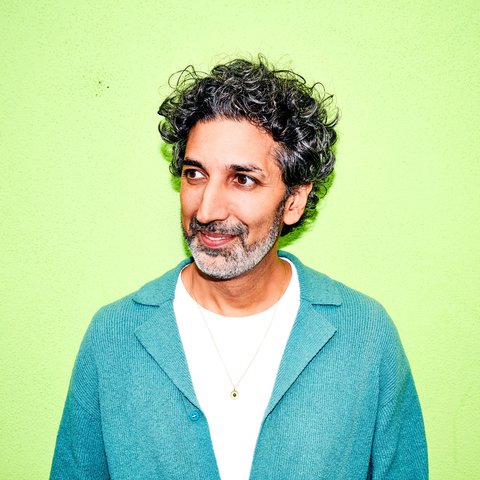The Berlin-based composer Ketan Bhatti created the theatre music for a new spoken opera based on Homer’s »Odyssey« at the Bad Godesberg Schauspielhaus theatre. Ketan Bhatti collaborated closely with Simon Solberg, director at Theater Bonn, to present a different take on the traditional heroic tale.
Fellow 2025 Ketan Bhatti
On a musical Odyssey
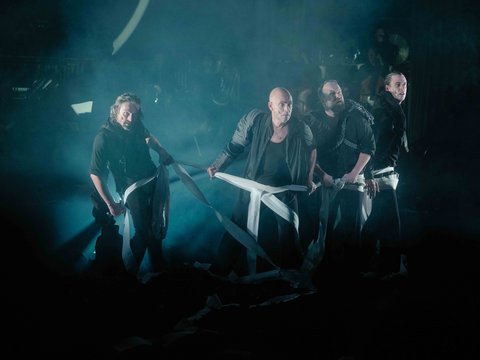
The »Odyssey« contains more than enough sailors’ yarns. In Solberg and Bhatti's version, Odysseus and his crew battle against Poseidon’s hostile winds, resist the Sirens’ call, fight the Cyclops and squeeze through the narrow passage between the man-eating sea monsters Scylla and Charybdis.
Director Simon Solberg uses Johann Heinrich Voss’s classic German translation of the epic. However, he incorporates his own texts written in the linguistic style of the 18th century. His version does not shy away from graphic descriptions of violence. This makes the fear and horror tangible when Odysseus’s group is repeatedly attacked with deadly force. The stage design, however, is an abstract, foggy space consisting of ropes, lengths of fabric, and ash. Are the experiences real, or are they a fever dream experienced by traumatised war veterans? What demons are they really fleeing from?
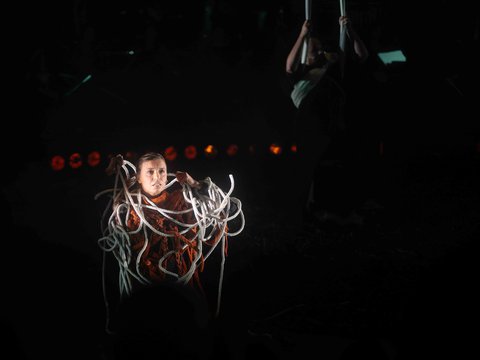
The play’s creators also attach importance to the role of Odysseus’s wife, Penelope. During her husband’s long absence, she must endure her own odyssey at home. Oppressed by the misogynistic structures of her court, she struggles to retain her sense of self, even as a supposed widow. In the epic, this is symbolised by her ruse of weaving a bridal veil: she secretly unravels and reweaves the threads. Above all, however, she repeatedly asks into the empty space: Why did her husband have to go to war? How could he leave her?
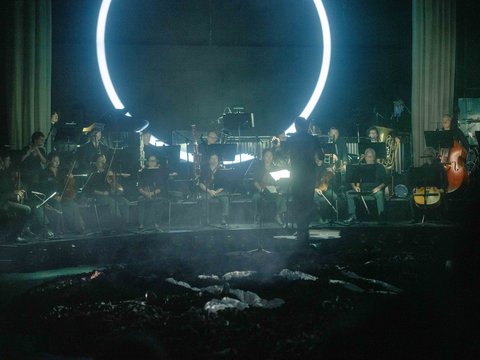
In addition to the actors, the orchestra plays a central role, positioned on stage directly behind the action. Ketan Bhatti composed a soundtrack for a chamber ensemble of the Beethoven Orchestra Bonn that, like film music, literally whips the scenes along. With clusters of sounds from strings and wind instruments, he makes the sea rage and the violence between Odysseus’ companions and hostile islanders escalate. Every movement, be it rhythmic rowing or panicked flight, is more perceptible to the ears than to the eyes.
Bhatti assigns specific sound signatures to the various foreign places and strange creatures of this odyssey, which transport the listener away. With the gentle sounds of the Iraqi skewer violin djoze or the Armenian shawm duduk, he weaves music from different origins into a composition that he himself describes as »mythical music« – »as far removed from any place as possible«.
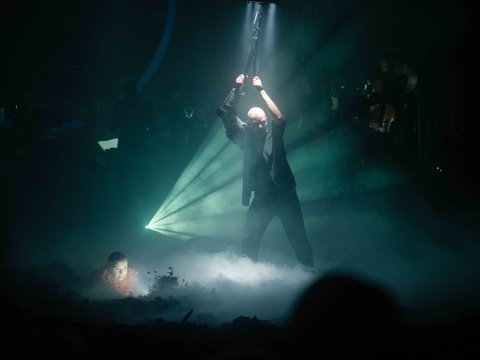
In this production, the »Odyssey« is far more contemplative and critical of itself than in the classical version. Odysseus doubts himself, the meaning of his journey and his decisions. He succumbs to delusions and hears the voice of his wife, Penelope, reproaching him. He laments his fate, even though he senses his own part in the events.
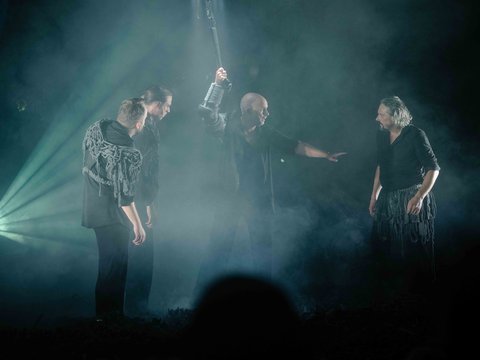
In his dialogues, Simon Solberg repeatedly explores the ambivalence with which the group confronts the violence of war and raids. Odysseus sees himself as an honourable warrior and abhors unnecessary raids and provocations. However, when he is unable to stop his companions from attacking the Cicones, the indigenous people of an island, he simply withdraws from the plan – yet the violence escalates nonetheless. Is he taking the easy way out as a leader?
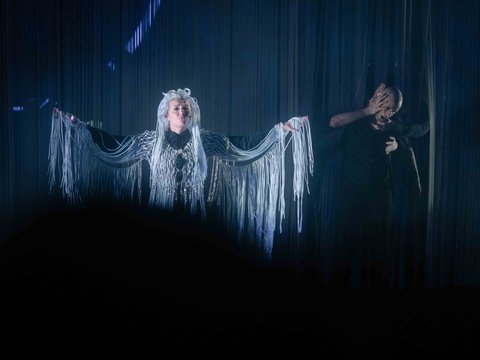
The sorceress Circe also makes an appearance – one of the most famous episodes from the Odyssey. But is it really magic that binds Odysseus to the witch and makes him forget his family and homeland? Or is he simply following his desires and exposing his own code of honour as hollow?
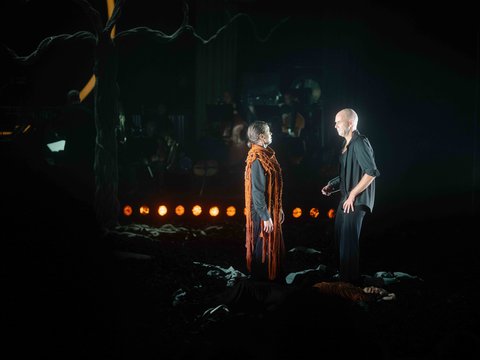
Unlike Homer’s original text, there is no happy ending at the end of this odyssey. Telemachus, the son of Odysseus and Penelope, does not survive the final battle that Odysseus, now returned home, wages against the so-called suitors, noblemen who remained at his court. The parents stand before their dead child and ask: Why did this have to happen? How could it be that honour compelled Odysseus to go to war? And why did he really not find his way back for so many years?
In this version at the Bonn Theatre, »The Odyssey« thus becomes an indictment of war, but it also raises many questions that resonate within us all: about guilt, about home, and about the ups and downs of a confused life’s journey.
The premiere at the festival
- , Schauspielspielhaus Bad Godesberg
Ketan Bhatti & Simon Solberg: The Odyssey
Dance, Performance & Music TheatreEnsemble Schauspiel Bonn, Beethoven Orchester Bonn, Dirk Kaftan

